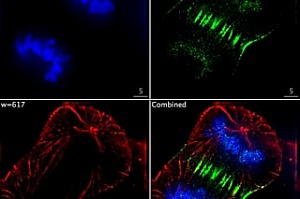TSU has begun recruiting for the first Master's programme in biophotonics in Russia to be conducted in English. Specialists in this area study the interaction of biological tissue and photons in order to understand the mechanisms of the physiological and pathological processes in the living organism at the cellular and molecular level. They will be able to apply this knowledge in developing new optical technologies for diagnosis of diseases in the early stages.
- Today, with the help of light, it is possible to diagnose and treat diseases using both modern methods of microscopy and spectroscopy and laser instruments used in cell biology or surgery, - explains Victor Cherepanov, Doctor of Physical and Mathematical Sciences, Head of the Department of Optics and Spectroscopy of the Faculty of Physics and the head of the Master’s programme. - Only three Russian universities have biophotonics as a separate area, but only TSU, under the double degree programme, will have the programme in English with the possibility of included training.
The Master's programme in biophotonics is interdisciplinary, and it is based on research in optics and biomedicine conducted at TSU in the StrAU Institute of Biomedicine. The University of Oulu (Finland) will be a partner in creating the programme. TSU, in particular, the Faculty of Physics, closely collaborates with it on scientific and research projects. Specialists at the Institute of Atmospheric Optics of the SB RAS, the Siberian State Medical University, and Saratov State University also participate in the programme.
The marketing analysis showed that by 2014, the volume of the world market in biophotonics had doubled, and thus, this subject will be a top one in the near future.
After graduation, graduates will be able to conduct research, and scientific, innovative, organizational, and managerial work in areas related to the latest achievements in biophotonics. Such specialists are in demand in biological, physical, chemical, and medical institutions where research is carried out on fundamental and applied interdisciplinary areas of physics, biology, and medicine, in practical health-care institutions, pharmaceutical companies, and the production sector.
In medicine and pharmacology, the graduates of this programme will be prepared to address various diagnostic problems (changes in the blood concentration of oxygen, glucose, various chromophores, and others) and therapeutics related to the treatment of diseases. After graduation, it is possible to continue studying in postgraduate programmes.

